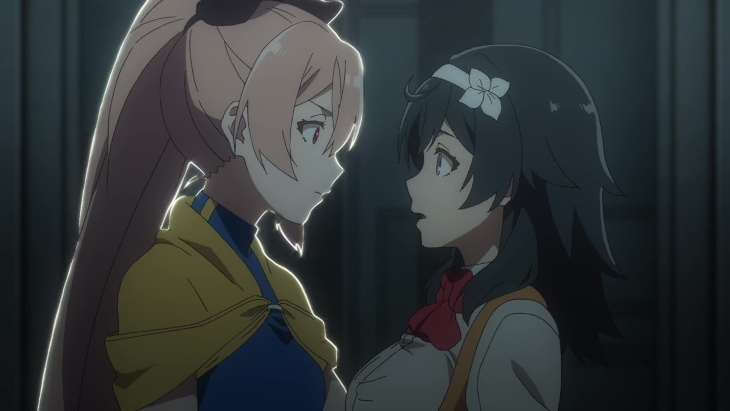
“Before Akari loses all her memories or sense of self, I swear I’ll kill her. After all, I’m a pure, just, and strong villain!”
The Executioner and Her Way of Life was easily one of my favorite premieres of this season. It featured a brilliant twist on the increasingly stale isekai genre that left me eager to see more. In my First Impressions Review I avoided spoiling any of the plot details of that first episode, but it isn’t practical to have a detailed discussion of this show while tip-toeing around key aspects of the premise, so if you’re unfamiliar with the core concept of the story, my final recommendation will be to check the show out. It isn’t as good as one might hope given the caliber of its opening, but it’s still a creative, enjoyable program that remained one of the more entertaining shows of the season. I’m certainly willing to invest time in any follow-up seasons that might be produced. In any other season, this probably would have been one of the standout shows, but this spring, the number of prominent titles was frankly excessive. Still, The Executioner and Her Way of Life is an innovative subversion of expectations that plays off the tropes of the isekai genre to make something fresh and new, even if it’s held back by tonal inconsistencies and uneven production values.
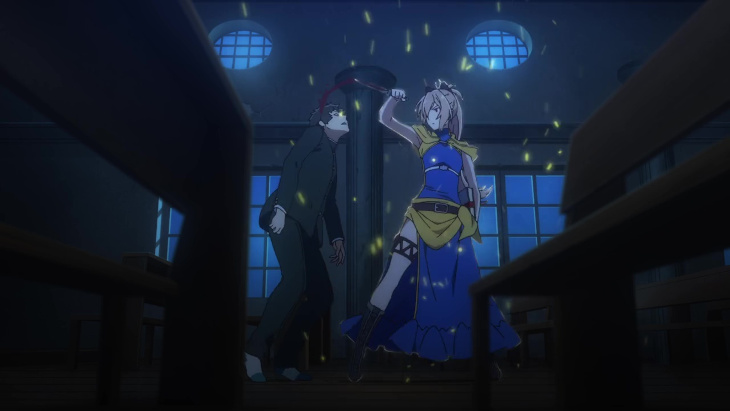
As a reminder, everything after this point has a spoiler warning for the first episode. In a spring season which featured a motley of good twists, The Executioner and Her Way of Life handily takes the award for, “Best Twists and Turns.” The show kicked off with the spectacularly well implemented reveal that our kindly nun, Menou, who has evidently been tasked with helping newly isekai-ed protagonists settle themselves in their new environment is, in fact, an executioner whose job is to murder these otherwise innocent but extremely dangerous interlopers. Constructing a setting where characters from another world gradually lose control of their powers and minds, and become cataclysms that wreak havoc is the type of fantastic narrative innovation that feels like the antithesis of everything Skeleton Knight was doing this season. However, the kink in Menou’s plans comes when she encounters a “Lost One” named Akari who has the ability to manipulate time. Lost Ones tend to unleash their powers in a final death throw, so Menou finds herself facing a dilemma where, every time Akari gets killed, her power to reverse time is enacted and revives her with seemingly no awareness that she’d even been killed. Thus, the result for Menou is a bizarre trek to find a means of killing Akari, while keeping Akari oblivious to her true intentions.
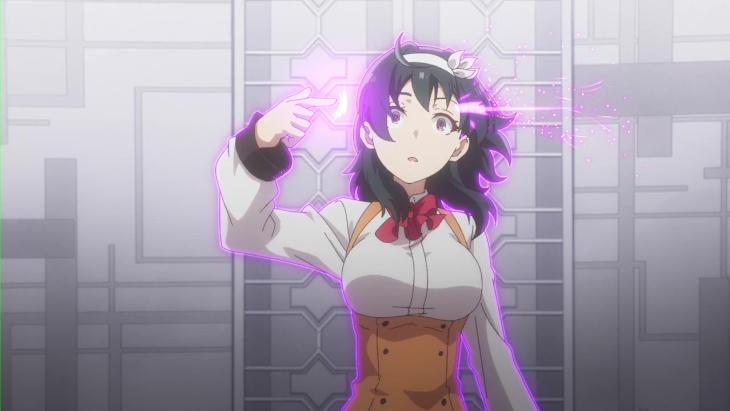
The biggest problem that The Executioner and Her Way of Life has lies in the tonal dissonance of its comedy. This isn’t a particularly novel issue. Anime has long been derided, and justifiably so, as the medium where topics of genocide and sacrifice are juxtaposed with fan-service and slapstick. The disconnect isn’t as extreme as that sounds, but it isn’t as far removed as one might like. Both Akari and Menou’s assistant Momo are obsessed with possessing Menou’s affections and while later reveals and twists offer additional clarity, context, and justification to these hijinks, it doesn’t actually make those elements less annoying. There is an irony to the fact that, despite this being a yuri series, the girl-girl dynamic actually feels somewhat skin deep at times. While both characters want to spend time with Menou, their affection for her is more often the basis for comedy rather than anything dramatic or romantic and it clashes with the more serious elements of the show. Episode 2 had me a bit worried because it was our introduction to Akari, and she doesn’t make a spectacular first impression. I was worried that, between her ditziness and unexplained obsession with Menou, she might be the arrow through the heart of this narrative. This fear was fortunately overblown, but I can’t argue that stylistic consistency is this show’s strong suit.
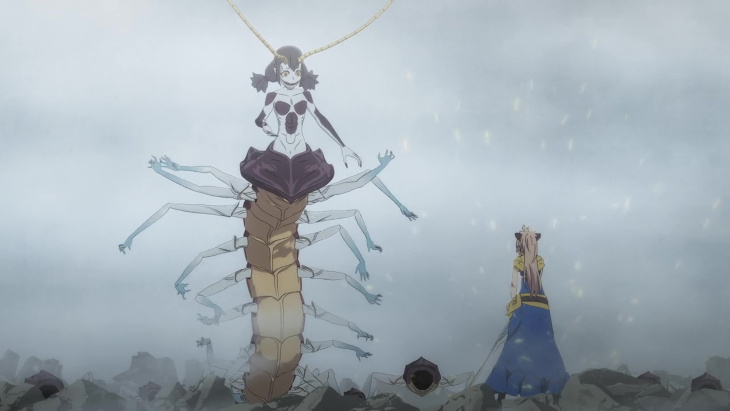
The production was helmed by J.C. Staff, and while I’m not awestruck by the end results, it does mark the best effort from them that I’ve seen in the better part of a decade. Still, the animation does start to diminish in quality as the show progresses. Flourishes of magic start looking less and less impressive as we work our way through the series and I was starting to worry when an enemy showed up towards the end who was predominantly CGI. That’s not to say the show looks bad, just that the budget was clearly being stretched thin. Thankfully, it seems J.C. Staff was discerning as to when to cut back and use shortcuts as the series ends with a bit of an uptick in production quality and even the CGI was utilized sparingly. Ultimately the big question hanging over the series at the end is whether there will be future continuations. The ending finds an okay stopping point to leave off with, but it’s clearly an incomplete narrative. Even if another season was to get greenlit, it may not be for a while as there are only about 3 years of light novels to work off of. Regardless, I’ll be sure to keep an eye out as I’m invested and want to see where The Executioner and Her Way of Life will lead.
Before I wrap up, a few Notes and Nitpicks:
- I’d say that the point where Akari went from cloying ditz to fascinating character would be in episode 6. She wasn’t insufferable prior to that episode, but that was the point where many of her quirks are clarified, so my recommendation for anyone who finds her annoying would be that they at least get to that episode.
- I really hope this doesn’t turn out to be a “Read the Light Novel” ending. I do a lot of reading, but I’ve never actually touched a light novel, and I wouldn’t put money on this being my first foray into the medium.
- I referenced Skeleton Knight in Another World earlier in the review, but I should clarify that I haven’t actually been watching it and will not be writing a review of it. Birdy has been reading reviews and providing me updates ever since I spoke to him about it. I’ll share an excerpt of our conversation when we first talked about the show where he suggested it sounded similar to Magical Girl Site: “I mean it wasn’t THAT bad. It’s 80% lighthearted milquetoast isekai and 20% rape. The problem is, as any questionable culinary expert will tell you, when your base flavor is bland, all you’ll taste is the rape.” Birdy was evidently quite… “taken” might be the wrong word… impressed by that “charmingly grotesque metaphor” as he put it.
- J.C. Staff has produced a ton of titles, so I’m not entirely confident with this assessment, but I believe this is the first time I’ve finished a show they produced since the first season of DanMachi back in 2015.

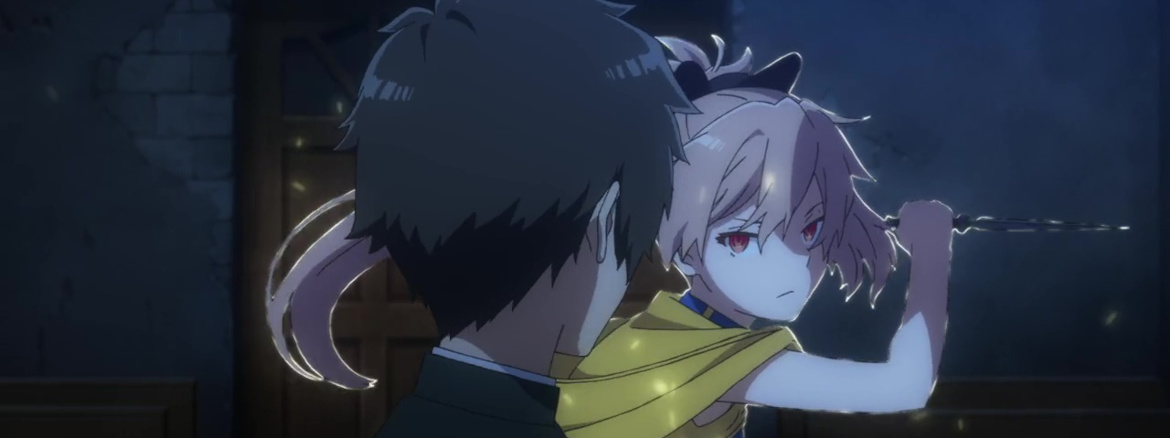


Add comment